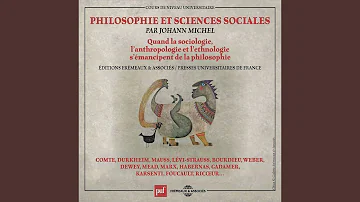Pourquoi le travail est un fait social total ?

Pourquoi le travail est un fait social total ?
Le travail est au fondement de l'ordre social, il détermine largement la place des individus dans la société, il continue d'être le principal moyen de subsistance et d'occuper une part essentielle de la vie des individus. Travailler est une norme, un “ fait social total ”.
Qu'est-ce qu'un fait sociologique ?
Dans son ouvrage fondateur Les Règles de la méthode sociologique (1895), Durkheim définit le fait social de la manière suivante : « Est fait social toute manière de faire, fixée ou non, susceptible d'exercer sur l'individu une contrainte extérieure ; ou bien encore, qui est générale dans l'étendue d'une société donnée ...
Quel sont les faits sociaux ?
Le fait social est défini comme « toute manière de faire, fixée ou non, susceptible d'exercer sur l'individu une contrainte extérieure; ou bien encore, qui est générale dans l'étendue d'une société donnée tout en ayant une existence propre, indépendante de ses diverses manifestations au niveau individuel ».
Is Mauss's total social life possible?
- Of course not. As far as Mauss is concerned, social life is always dynamic, and “total” is a concept for grasping “a perpetual state of becoming” and “the fleeting moment.” [2006: 142] [1972: 77] While it is not impossible to expect Lévi-Strauss-style transformation to play this role, the aspect that Mauss hopes for is different.
What is “total social fact?
- 1. “Total social fact, ” a concept virtually synonymous with the name Marcel Mauss, has already inspired all manner of fine discussion. Before beginning the debate let us confirm that “total social fact” does not presuppose a parts-and-whole image of society along the lines of anthropology’s functionalism.
What is Mauss's concept of Mana?
- Mauss was cautious about bringing substantive concepts such as power, cause and effect into science. If this gives the impression that mana is not free from such concepts, that is because it is the destiny of the word to take on the work of portraying “a perpetual state of becoming” without reducing it to anything.













